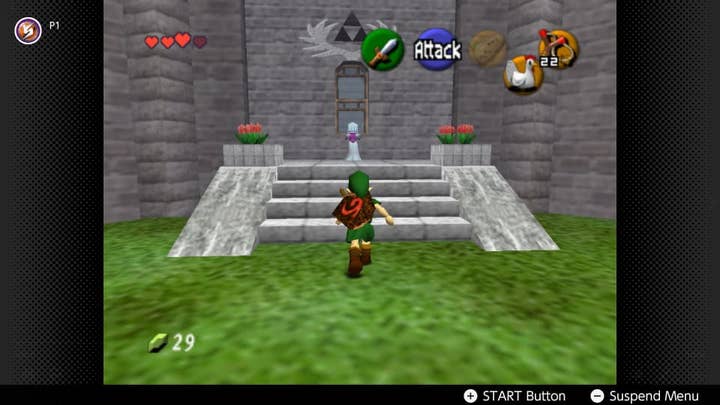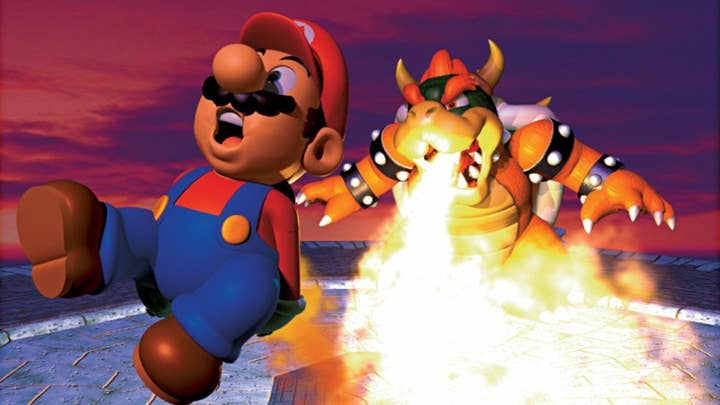Nintendo draws attention (and ire) to its weak online offering | Opinion
A ham-fisted attempt to entice customers to a higher-priced subscription with poorly emulated retro games reveals just how weak Nintendo's service pillar still is
Nintendo has never been great at online services. Despite the company's early experiments with online games and services -- such as the Satellaview (Japan) and XBAND (USA) services for the SNES, which launched all the way back in 1995 -- it's never really felt like something Nintendo was committed to, and if anything, it seemed to retreat away from online services in later years, doubling down on its core strengths in single-player and local multiplayer games.
The motivations for that were likely varied and complex: deep concerns about the threat posed by hostile, abusive or even predatory online players to Nintendo's prized family-friendly image certainly played a role, and some internal acknowledgement of the company's own lack of internal competence at developing and running such services probably crept into the decision-making process in later years. The results, however, were clear and simple, with Nintendo's online services consistently running a generation or two behind its competitors in terms of features and functionality, and often creating barriers to player contact which feel very deliberately placed -- the need for a mutual exchange of friend codes through another medium before connecting with a player, for example, or the exclusion of voice chat support.
Nintendo - usually one of the most ruthlessly competent companies in the industry - really doesn't know what it's doing and what it's going up against in the realm of online services
In spite of this being such a long-standing weak point, the company's critics haven't made much hay about the Switch Online service. It's bare-bones, certainly -- the Switch is trounced in terms of online features and functionality by consoles more than ten years its senior -- but it's at least priced to match, with an annual subscription costing just $20. That very low price point and the minimalist nature of the offering insulate Nintendo from most critiques.
The core features -- "playing games online" and "backing up your save files online" -- generally work just fine, and that low, low price makes people a bit more forgiving of the fact that everything else about Nintendo's online offering more or less sucks, with more advanced features (like voice chat, which I can't believe I just called a "more advanced feature" here at the tail-end of 2021, but there you go) largely being funnelled through a smartphone app that's fiddly and annoying on its best days, and downright buggy on its worst.
That low-cost, bare-bones approach has allowed Nintendo's very weak online service offering to fly under the radar for quite some time -- which makes it all the more of a forehead-slap that the company blew its own cover this week. The launch of an "expansion pack" for the online service -- an optional higher-tier service that increases the annual membership fee to $50 -- has drawn a ton of attention to Nintendo's online offerings, and very little of that attention has been positive in its tone. While the new service is optional, so players can keep just trucking on with the $20 tier if they're happy with it, that saving grace can only save so much, and Nintendo's quietly not-very-good online strategy now risks becoming something of an albatross for the company's image and reputation.
To briefly summarise, for those who haven't been following this week's launch and its backlash -- the Switch Online + Expansion Pack bundle offers players, in exchange for this pretty dramatic 150% subscription price hike, access to a small selection of emulated N64 and Sega Mega Drive (Genesis) games, plus an expansion pack for Animal Crossing: New Horizons. The remainder of the features remain the same; the "expansion pack" is really a software subscription offering, rather than being any major improvement or upgrade to the online experience on Switch itself.

The Expansion Pack, in other words, speaks very clearly to an ambition on Nintendo's part to use its back catalogue of software to drive users towards higher subscription tiers. That's very much in line with how business models elsewhere in the industry, of course, and it also fits with Nintendo's long-standing strategy of using its impressive catalogue of retro games to drive revenues and engagement.
The problem isn't the concept; it's the incompetence of the execution, and the seeming failure to understand the inevitable, and deeply unflattering, comparisons which this service would invite. I don't think Nintendo wants to compete with Game Pass, of course, nor do I think anyone would compare those offerings -- the pricing alone remains a long way from that -- but it's not unreasonable to compare the Expansion Pack offering with Sony's PS Plus. Nintendo's $50 Expansion Pack offering is only $10 cheaper than PS Plus, and the gulf between the value propositions of those offerings (exacerbated by Sony's current pretty generous selection of free PS4 Greatest Hits titles for PS5 owners) only serves to reinforce the notion that Nintendo -- usually one of the most ruthlessly competent companies in the industry -- really doesn't know what it's doing and what it's going up against in the realm of online services.
The longer the company takes to get a handle on this vital area of the business, the harder it will be to build a services pillar, as its rivals have done so effectively
It's not that it should be shocking to anyone that Nintendo is trying to charge exorbitant prices for access to very, very old games -- that's been Nintendo's go-to move for ages, but the company usually does a superb job of dressing up what's effectively price gouging on retro titles in bright, primary colours and cheerful presentation. Nostalgia is to Nintendo what the "reality distortion field" was to Apple under Steve Jobs; its ability to fine-tune nostalgia allows it to get away with selling people's memories back to them for a premium.
In this instance, however, the company has not only provided sub-par, badly-emulated versions of some of its own back catalogue games -- something which really shouldn't be happening, given how protective it usually is of the integrity of that back catalogue -- but it has also wandered into the realm of game subscription services more generally, an area in which it seems about as well-equipped to compete effectively as an unsteady fawn navigating a minefield.
Consumer perception matters, not just where it concerns people getting mad on Twitter and Reddit but to the long-term image of a company in the eyes of consumers more broadly; game subscription services are arguably the hottest area of competition in the games market right now, and Nintendo just turned up to this battle touting a price point only slightly south of Sony's, and armed with a grab-bag of poorly emulated retro games.
The company could have gone any number of other directions with this. A full Game Pass type offering was probably never really on the cards despite the various experiments we've seen with game streaming on Switch, but I think what a lot of people hoped was that it would finally put together a comprehensive and definitive collection of back catalogue titles from its old consoles to access through a single subscription service. That would certainly have been a worthwhile add-on for a not insignificant part of the audience. Instead, we have a major stumble on the company's part -- a service launch whose only saving grace is that it's entirely optional, but which will still likely have a major impact on consumer perceptions of Nintendo's online and service offerings for a long time to come, and which has drawn unwanted attention to the wider question of why Nintendo is so bad, and so far behind its competition, in terms of online services.
It's not a defence, as such, but still bears stating that being crap at online services is hardly a Nintendo-specific issue -- it's an endemic problem in Japan, one which has significantly held back the country's international competitiveness in an era where most consumers expect high-quality online services are a baseline, not a special feature.
Where Japan's general lagging on online services and Nintendo's own decades of hand-wringing over how far the Internet should be able to get into its family-friendly walled garden might have served as an excuse once, though, in an era when games like Splatoon and Smash Bros have become major online hits (and is almost exclusively an online title in the former case), Nintendo's failure to get to grips with online service offerings, and its insistence on holding online services and interaction at arm's length from its consoles, is outdated and self-defeating.
The longer the company takes to get a handle on this vital area of the business, the harder it will ultimately be to build a services pillar, as its rivals have done so effectively in recent years.

